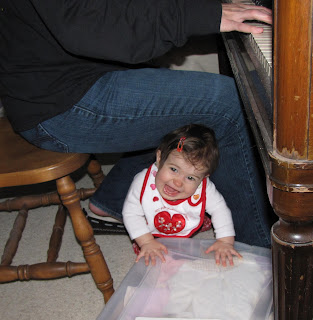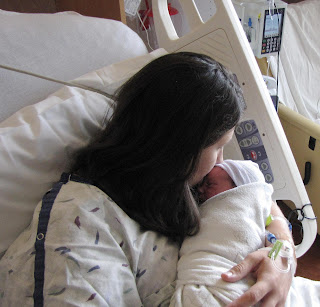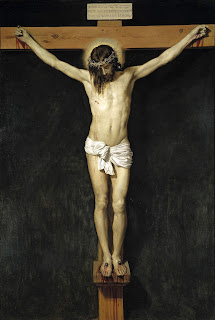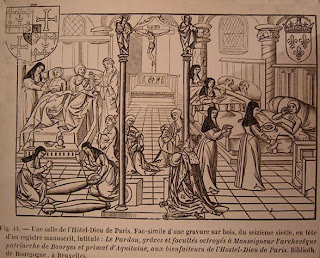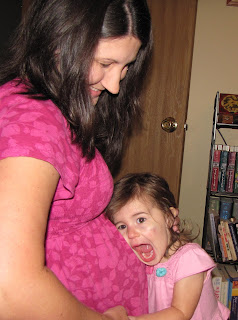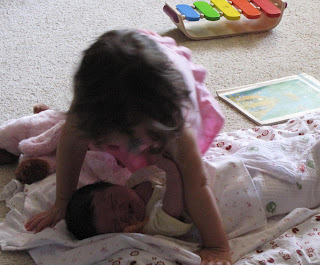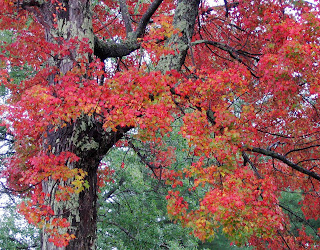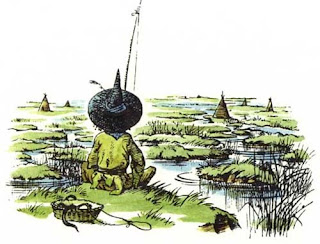Our family has been struck again, less than a year after our Kristina died, and I am reminded of how much I hate cancer, of how much I hate death.
Again
The Gift of Loudness
art credit: Elijah in the Wilderness by Washington Allston
God’s Passing Notes
I am really tired of getting things wrong, of feeling ashamed of myself.
I didn’t speak when I should have spoken because I was afraid of someone’s opinion of me.
I spoke sarcastically to my husband in front of several friends.
I chose to read story books rather than to spend time with God.
I yelled at my babies. While we were praying!
I often have a really hard time loving myself. I feel frustrated with my inability to obey, to love, to be perfect. I often have a very low opinion of myself.
I am fairly certain that I am not the only one who feels like this.
I want to share a truth that was recently spoken to me: Your opinion of yourself doesn’t matter.
Does that sound hard? It is true.
I care very little if I am judged by you or by any human court; indeed, I do not even judge myself…it is the Lord who judges me. ~ I Corinthians 4.3
It doesn’t matter what you think of yourself, whether or not you approve of yourself. Only God’s opinion of you matters.
That’s worth saying again.
The only thing that matters is whether or not God approves of you.
This then is…how we set our hearts at rest in His presence whenever our hearts condemn us. For God is greater than our hearts and He knows everything. ~ I John 3.19-20
And the best news of all? The news that fills up my heart and gives me peace?
If you are in Christ, God does approve of you!
Just read Romans 8:
vs 1: Therefore, there is now no condemnation for those who are in Christ Jesus…
vs 33: Who will bring any charge against those whom God has chosen? (Yes, this includes bringing charges against yourself!) It is God who justifies.
vs 38-39: For I am convinced that neither death nor life, neither angels nor demons, neither the present nor the future, nor any powers, neither height nor depth, nor anything else in all creation, will be able to separate us from the love of God that is in Christ Jesus our Lord. (italics mine)
When I am playing a difficult piece on the piano, sometimes I play the wrong notes. When that happens, rather than getting upset, making horrid faces and just quitting, my mother taught me to simply improvise the wrong notes into the next bit of music. These wrong notes are then given a new name: passing notes – notes that don’t really fit but can become fitting.
For me, one of the most breathtaking things about being a Christian is that God can take our worst mistakes and turn them into His passing notes. That’s what God is promising to do for us in the end, and it can start now. And if you haven’t heard that before, it’s time you did. ~ Jeremy Begbie
So. Take a deep breath. Quit thinking about yourself and your mistakes.
Trust God’s approval of you in Christ. Allow Him to turn those mistakes into His beautiful passing notes that lead us to become who God intended for us to be.
Tender
art credit: Christ and Samaritan Woman by Siemiradzki
How Truth Got Hijacked
One reason that I wrote recently about character, how we form it and why it matters, is because of the lack of it that I see all around me.
When we can cheat and lie “just a little bit” and still think highly of ourselves, when we show our kids that it’s okay to do little wrong things to get by, when it is more wrong to judge evil than to do evil, we are in trouble. For our society to function, we need people of character in leadership positions from teachers and managers to mayors and governors.
Why is this? Why do ordinary people care so little about acting in moral ways?
I think a lot of this dearth of character, of virtue, comes from the rejection of the idea of truth.
If truth is, at best, all relative, a matter of perspective, and at worst, a social construct, whatever we make it to be, then why should we work hard to develop a character that may or may not be valid to those around us?
If there is no truth that we can deliberate and discover together as a society (whatever that truth may be), we are left with “power and propaganda and grievance and anger and caucuses and anti-caucuses and special interest groups and victims and vengeance.” ~ Richard John Neuhaus
There is an assumption in much of society, in many of our universities especially, that we can’t keep society and relationships going if we talk about truth because truth brings conflict. Truth has gained a negative connotation, one that assumes that anything so divisive has no appropriate role in public life.
How did this happen? How did truth get hijacked and associated with the negative? How did truth become linked with religious totalitarianism and Osama bin Laden? How did it become shameful to declare a belief in truth, even simply the idea of truth, regardless of what that truth is?
Part of the answer, I’m afraid, is due to the Church. We have a history of wielding the truth as divisively as possible, of tearing down and even destroying rather than creating and building up. We have used truth as an excuse for starting wars and we have used truth as an excuse to look down on our neighbor.
Richard John Neuhaus says that it is now the Church’s task to learn how to assert truth in public “persuasively and winsomely and in a manner that does not violate but strengthens the bonds of civility”. He challenges that it is our duty to not just tolerate those with whom we disagree but to eagerly engage them in love.
How? How do we declare truth without being divisive and unpleasant, causing strife, conflict and wars?
By remembering grace.
By remembering that we can’t even live up to our own standards and yet we are loved.
If we despise anyone or feel superior to anyone, we are living by moral performance rather than grace. And living by moral performance is what brings divisiveness to the truth.
By the way we live, living a life of loving and caring for others, we can show truth and speak truth with no divisiveness at all.
This is what the early Christians did when they loved the poor, empowered women, and brought together the races and classes. This is how the early Church overran the Roman Empire when it wasn’t even trying to gain political power.
This. This is the truth we need.
Because this truth is
a God Who became weak, Who loved and died for the people Who opposed Him, forgiving them. ~ Tim Keller
Will you speak and live this kind of truth to your public? Our world desperately needs Him.
The Last Temptation
This, the Friday before Easter, is a hard day.
I’d much rather jump straight into Easter, to the joy of the earth singing as it once again feels the touch of Jesus’ feet.
Yet you cannot get to the empty tomb without going through the suffering of the cross.
I’ve written a lot about suffering and pain in these pages. I am often tempted to do almost anything to avoid feeling pain.
It recently struck me that perhaps that is what temptation really is: Satan doing everything he can to help you avoid suffering here on earth.
We don’t know about very many of Jesus’ temptations, but God gives us enough glimpse to know that He, like me, desired to avoid pain.
That is what Jesus’ wilderness temptings were: Satan trying to convince Jesus to believe in him and take the easy, pain-free way of becoming king rather than believing God and obeying His pain-filled, cross way of becoming king.
The way that would also rescue His people.
Too often, I believe Satan instead of God.
Yet Satan did not end his tempting of Jesus in the wilderness.
When the devil had finished all this tempting, he left Him until an opportune time. ~ Luke 4
That opportune time?
The Garden of Gethsemane. Jesus’ last temptation.
The temptation to once again take the comfortable way instead of the suffering way. The temptation to believe in Satan’s hazy seductions rather than in God’s rock-solid promises.
Father, if You are willing, take this cup from Me; yet not My will but Yours be done. ~ Luke 22
I bow my head in shame, knowing how often I choose to believe Satan.
Yes, He was God, yet He still struggled as much as we do with this same temptation.
And being in anguish, He prayed more earnestly, and His sweat was like drops of blood falling to the ground. ~ Luke 22
And so we come full circle.
That which began in a garden now ends in a garden because this time the man obeyed.
Jesus obeyed. He chose to believe in God’s promise while knowing the immediate consequences of pain.
My heart wants to weep because I know why He did this.
But God demonstrates His own love for us in this: While we were still sinners, Christ died for us. ~ Romans 5
Since the children have flesh and blood, He too shared in their humanity so that by His death He might destroy him who holds the power of death — that is, the devil. ~ Hebrews 2
Because He loves us and He wants to rescue us, to rescue you, from the power of pain and death.
This. This is why we linger long on this hard day instead of leaping ahead to Sunday. To remind us to believe in God’s promises of the end of death and pain even while knowing of the fleeting death and pain we might face in obedience.
May I end with something I wrote and a video I made with a friend? (if you are viewing this via email/in a reader, click here to view this video)
Pause for a moment and dwell on the hard things so that on Sunday your heart can resonate even more fully with Easter’s joy.
(special thanks to Kati Pessin for putting together the video and to our Pastor for his thoughts on Christ’s temptations)
art credit for the video: music is “Window” by Album Leaf
Photographs of Love
Be Still and Wait
Follow the Signs
May we continue our conversation from last week?
Reality is hard.
Our family has become steeped in pain and loss.
Many others suffer far greater tragedies.
Reconciling the hurt with the heart of God is hard.
It is tempting to add a veneer of softness, to speak in cliches that turn raw, ripped-open pain into a lie.
Sometimes this is even encouraged among those of us who follow Christ.
Yet to do this denies that we are real, that our hearts can be ripped in two, that our pain and loss can suffocate and almost overwhelm us.
To do this denies that Christ is real, that His body and heart were also ripped apart.
My God, my God, why have you forsaken me?
All through the Bible, God seems to not place much importance at all on whether we are free from pain or suffering.
Abel. Abraham. Joseph. Moses. Uriah the prophet. John the Baptist…Jesus’ cousin. All of the apostles…Jesus’ closest friends.
Understanding why Kristina had to die is hard.
I might never know the reason.
God’s purposes are not for me to understand His plans: His plan is for me to understand Who He is…Faith is this unwavering trust in the heart of God in the hurt of here. (Ann Voskamp, A Holy Experience)
Can I trust in the heart of God?
“Once and for all,” said the prisoner, “I adjure you to set me free. By all fears and all loves, by the bright skies of Overland, by the great Lion, by Aslan himself, I charge you –”
“Oh!” said the three travelers as though they had been hurt. “It’s the sign,” said Puddleglum. “It was the words of the sign,” said Scrubb more cautiously. “Oh, what are we to do?” said Jill.
It was a dreadful question. What had been the use of promising one another that they would not on any account set the Knight free, if they were now to do so the first time he happened to call upon a name they really cared about? On the other hand, what had been the use of learning the signs if they weren’t going to obey them? Yet could Aslan have really meant them to unbind anyone – even a lunatic – who asked it in his name? … They had muffed three already; they daren’t muff the fourth.
“Oh, if only we knew!” said Jill.
“I think we do know,” said Puddleglum.
“Do you mean you think everything will come right if we do untie him?” said Scrubb.
“I don’t know about that,” said Puddleglum. “You see, Aslan didn’t tell (Jill) what would happen. He only told her what to do. That fellow will be the death of us once he’s up, I shouldn’t wonder. But that doesn’t let us off following the sign.”
We aren’t guaranteed that anything here on earth will turn out okay. I wish we did have that promise.
Instead, if we have nothing else (and we do have so much else!), if we can turn to and trust nothing else, we have the cross.
After his wife of only four years had died of cancer, C. S. Lewis said
If only I could bear it, or the worst of it, or any of it, instead of her…But is it ever allowed? It was allowed to One, we are told, and I find I can now believe again, that He has done vicariously whatever can be so done. He replies to our babble, “You cannot and you dare not. I could and dared.”
And so I find that perhaps, after all, it does not matter why. It does not matter from whence came the hard thing.
If God ever had to prove anything, at the cross He proved His love, His promise to work for the best of all He created.
It is not a bad thing to seek for the why’s and how’s and from where’s. God is able to handle our questions, our fears.
Yet if we never get any answers, if we never know the reasons, if we never understand, we who have chosen to follow Christ, who have allowed Jesus to be the Lord of our lives, we who have embraced His sacrifice of love…
We aren’t let off following the signs.
Art Credits: Photograph of Cross wooden statue by Asta Rastauskiene; Marsh-wiggle picture (I was not able to find the original); Rembrandt’s The Three Crosses


